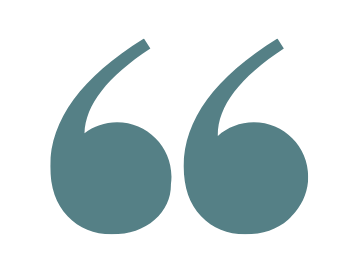You don't have to have it all figured out before you start
A safe space to be real, no judgement, no pressure, no performance.





therapy offers room to breath and heal
- Feel at peace without the need to be perfect
- Release the exhausting urge to stay in control
- Feel safe and grounded in your own body
- Believe you’re enough
- Belong fully, without hiding who you are
- Quiet the inner battles and find ease
Types of
Therapy
Cognitive Behavioural Therapy (CBT)
Cognitive Behavioural Therapy helps you spot the thought-behaviour cycle that fuels anxiety, low mood, or perfectionism. In session we map specific triggers, challenge distorted thinking, and rehearse new coping actions. You’ll leave with practical tools, thought records, exposure plans, behavioural experiments that you can use straight away in daily life.
Compassion-Focused Therapy (CFT)
Compassion-Focused Therapy targets the inner critic that keeps you feeling “never enough.” We explore the brain’s threat, drive and soothing systems, then build exercises (imagery, compassionate letter-writing, voice-tone work) that activate your soothing system. The result: reduced shame, warmer self-talk, and a stronger sense of worth.
Acceptance & Commitment Therapy (ACT)
Acceptance & Commitment Therapy teaches you to let thoughts and feelings come and go without derailing you. Through mindfulness, defusion techniques and values mapping, we clarify what truly matters, then set “tiny-step” commitments that align behaviour with those values. ACT is ideal when you feel stuck, avoidant, or ruled by worry.
Eye Movement Desensitisation & Reprocessing (EMDR)
Eye Movement Desensitisation and Reprocessing uses bilateral stimulation (guided eye movements or taps) to help the brain re-file traumatic memories so they stop triggering intense flashbacks or body alarms. Sessions include resourcing for safety, target memory identification, and reprocessing phases. Evidence shows EMDR can bring significant relief in fewer sessions than traditional talk therapy.
Schema Therapy (Advanced-certified)
Schemas are lifelong themes—“I’ll be abandoned,” “I’m defective,” “I must be perfect”, formed early and replayed in adult life. Using imagery rescripting, chair work, and limited re-parenting, advanced-level Schema Therapy gently challenges these patterns while meeting the emotional needs that were missed. It’s especially helpful for personality disorders, complex trauma, and chronic relationship struggles.
Areas of
Expertise
PTSD & Complex PTSD
Flashbacks, nightmares, and hyper-vigilance keep trauma alive. Evidence-based tools such as EMDR, grounding, and gradual exposure, help the brain re-file memories so you feel safe in the present instead of stuck in the past.
Long-term or childhood traumas create deep mistrust and identity wounds. We use Schema Therapy, EMDR, and parts-work to repair self-worth, stabilise emotions, and build secure, fulfilling relationships.
Emotional Difficulties & Relationship Issues
Persistent patterns of feeling overwhelmed by intense emotions, struggling to trust others, or getting caught in painful relationship patterns.
I see someone who may have had to survive without enough safety, consistency, or care, and who developed entirely understandable ways of coping. These strategies might now feel like the problem, but they were born from pain, not pathology.
Eating Disorders & Body Image Issues
I work with a range of eating-related difficulties, including anorexia, bulimia, binge eating, orthorexia, and other forms of disordered eating. Some clients come with a formal diagnosis; others simply know that their relationship with food, body image, or control feels overwhelming, compulsive, or filled with shame.
Whether you’re stuck in cycles of restriction, purging, emotional eating; or simply feel at war with your body, our work will gently explore the deeper emotional roots while building practical tools for safety, stability, and self-compassion.
Anxiety Disorders
From relentless worry, panic attacks an phobias, we pinpoint triggers, calm the body’s alarm system, and build confidence-boosting exposure plans so anxious thoughts shrink and everyday life feels doable again.
Depression & Stress
Depression: When motivation, joy, and energy flat-line, we blend mood-lifting routines, thought work, and self-compassion to rekindle interest, restore hope, and guide you out of the fog.
Stress: Chronic tension, overwork, and “always-on” thinking drain body and mind; we teach nervous-system resets, boundary skills, and value-aligned pacing so you can thrive without paying with your health.
Neurodivergent Support
You might be autistic, have ADHD, or experience the world in a way that doesn’t fit into conventional boxes. I’ve undertaken specialist training in adapting schema therapy and trauma work for neurodivergent clients.
That means I take time to understand how your brain works. I adjust the pace, structure, and language of sessions so they’re more accessible.
We’ll work together to untangle distress, make space for the way you process emotion, and reduce shame around needs that may have been dismissed or misunderstood in the past.
Fees
- Self-funding clients: £150 per session
- Clients using Bupa or other health insurance: The rates agreed with your insurer apply. Please check with your provider for details of your cover.
I draw from a range of evidence-based therapies in an integrative way, tailoring each session to your unique needs, supporting healing at both emotional and cognitive levels."
Whatever you’re carrying, you don’t have to carry it alone. Reach out today.
“You don’t have to perform or prove anything in therapy. You can show up exactly as you are, and we’ll work through it together.”
